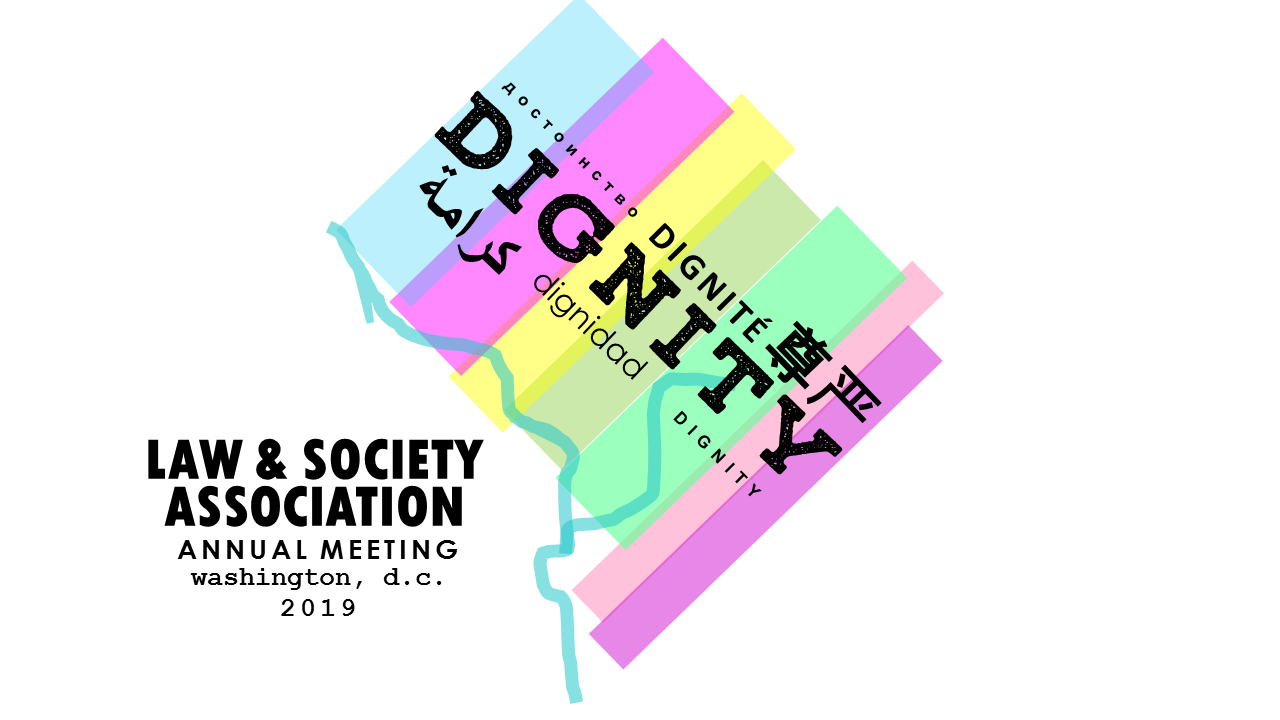2019: CRN 28- New Legal Realism
Schedule of Events
Events:
1. CRN 28: New Legal Realism Business Meeting– Thursday, May 30, over dinner at Ethiopic Restaurant (401 H St. NE) starting at 8:00 p.m. For additional information, email Meredith Rountree at meredith.rountree@law.northwestern.edu
2. Thursday, May 30, 4pm: CRN 28 Welcome Meeting during the final part of the Roundtable Discussion (room: Congressional D).
*************************
PANEL 1: New Legal Realism (Part 1)- Historical, Theoretical, and Empirical Approaches
Thursday, 5/30: 12:45 p.m. – 2:30 p.m.
Paper Session
Room: Regency Suite 491
Description: The new legal realist movement focuses explicitly on supporting efforts to translate social science into legal scholarship, while also encouraging a broader understanding of legal logics that are different from the logics governing empirical research. This panel highlights the various theoretical frames of New Legal Realism (NLR), NLR’s approaches to contemporary legal and societal dilemmas, and also illuminates how diverse disciplinary perspectives can inform NLR research going forward. Papers specifically examine accessing justice through law, European legal realism, US legal realism, NLR from an economics perspective, and international legal ethnography.
Chair: Asad Rahim (American Bar Foundation/UC Berkeley)
Discussant: Meredith Rountree (Northwestern Law)
Presentations:
- Modern Legal Realism- Shauhin Talesh (UC Irvine) and Heinz Klug (UW Madison)
- “The Life of the Law Has Not Been Logic; It Has Been Experience”: International Legal Ethnography and the New Legal Realism- Richard Ashby Wilson (University of Connecticut, School of Law) and Jens Meierhenrich (London School of Economics and Political Science)
- A Brief History of Midwest American Legal Realism- Ajay Mehrotra (American Bar Foundation/ Northwestern Law)
- New Legal Realism Goes to Law School: Integrating Social Science in Law and Legal Education- Emily Taylor Poppe (UC Irvine, School of Law)
- A Realist Perspective on Legal Strategy in (the) Practice- Liora Israel (Ecole des Hautes en Sciences Sociales, Paris)
*************************
PANEL 2: New Legal Realism (Part II)- Roundtable Discussion
Thursday, 5/30: 2:45 p.m. – 4:30 p.m.
Roundtable Session
Room: Congressional D
Description: All interested in the translation of law-and-society research in the law school world are invited to join in our roundtable discussion! The new legal realist movement focuses explicitly on supporting efforts to translate social science into legal scholarship, while also encouraging a broader understanding of legal logics that are different from the logics governing empirical research. Papers presented in our panel New Legal Realism Part I highlighted the various theoretical frames of New Legal Realism (NLR), NLR’s approaches to contemporary legal and societal dilemmas, and also how diverse disciplinary perspectives can inform NLR research going forward. Roundtable presenters continue the conversation, adding perspectives such as from economics and European legal thought, while opening the discussion to the audience.
Chair: Meghan L. Morris (American Bar Foundation/University of Chicago)
1.Elizabeth Mertz (American Bar Foundation/University of Wisconsin, Madison)
2. Matthew Patrick Shaw (Vanderbilt Peabody College)
3. Mikael Madsen (iCourts-Centre of Excellence/International Courts, University of Copenhagen)
4. Meredith Rountree (Northwestern Law)
5. Shauhin Talesh (UC Irvine)
*************************
PANEL 3: Torture in Court (Co-sponsored with CRN 50)
Saturday, 6/1: 8:00am- 9:45am
Paper Session
Room: Thornton B
Chair: Frank Munger (New York Law School)
Chair/Discussant: Nicholas Rush Smith (CUNY- City College)
1.Rendering Torture Harmless in Thailand’s Courts
Nick Cheesman (Australian National University)
2.The Indian Supreme Court’s Struggle with Torture and
Human Dignity
Jinee Lokaneeta (Drew University)
3. The Role of the Military Legal System in Normalizing
Torture in the Occupied Palestinian Territories ( OPT)
Lina Saba-Habesch (Hebrew University of Jerusalem)
4. Torture Is the “Nasty Center” of the 9/11 Case at
Guantanamo
Lisa Hajjar (University of California – Santa Barbara)
*************************
PANEL 4: Legal Translations for Social Issues
Saturday, 6/1: 10:00 a.m. – 11:45 a.m.
Paper Session
Room: Grand Canyon
Description: This panel highlights a core concern for new legal realism: how to translate knowledge about social issues within the world of formal law, which serves as an important lingua franca for legal professionals. If those professionals cannot access the knowledge relating to discrimination provided by statistics, or relating to domestic violence provided by psychology, then law may fail due to ignorance. If tacit doctrinal norms develop without considering real-world social effects, doctrine may undercut stated democratic goals. And when law incorporates unstated external logics (eg from architecture), other disciplines more experienced in those external logics can shed light on “legal” reasoning in those cases. What kinds of interdisciplinary tools can legal professionals use in translating the social world for doctrine?
Moderator/Discussant: Arielle Tolman (Northwestern University)
- Appellate Judicial Aversion to Statistics: A Contributing
Cause to Weakening Rights Protections in the United
States
Ben Merriman (University of Kansas) - Democracy, Distribution, & Meta-Constitutional Norms
in U.S. Constitutional Law
Amanda Shanor (University of Pennsylvania, The
Wharton School) - Exporting American Discovery
Yanbai Andrea Wang (Stanford Law School) - Riverfront Victorian (with Ghost): Architectural Fact,
Legal Fiction
Lisa Haber-Thomson (Harvard University) - The Loaded Question (“Why Didn’t She Leave”?) and
Persistent Confusion Between “Syndrome” Evidence
and a Defense
Martha Mahoney (University of Miami School of Law)
*************************
PANEL 5: The Oath and the Office
Saturday, 6/1: 11:50am- 12:35pm
Author Meets Reader (AMR)
Room: Everglades
Author: Corey Brettschneider, Brown University
Readers: Stuart Chinn, University of Oregon School of Law
Aziz Huq, University of Chicago Law School
Robert Tsai, American University College of Law
Emily Zackin, Johns Hopkins University
Description: This book discussion will focus on the role of the American presidency in an age of conservative nationalism. Readers will offer comments about Brettschneider’s The Oath and the Office but range broadly on matters of constitutional constraints, valid use of executive power, and the capacity of citizens to check executive abuse. In the age of Trumpism, what kinds of checks are possible and where should we deeply reconsider the rise of the executive-dominated model of national leadership?

